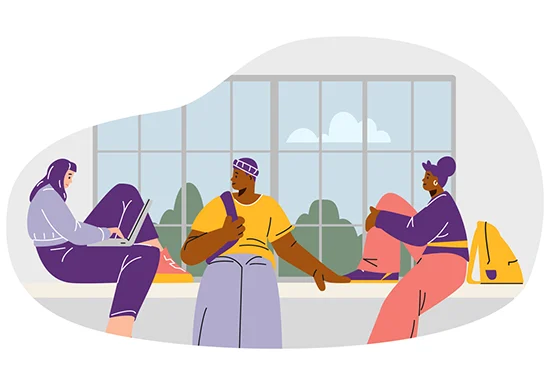The Many Benefits of Collaborative Peer Learning
Updated: September 30, 2024
Published: September 27, 2024

The visionary Russian psychologist Lev Vygotsky pointed out, about 90 years ago, that learning is a social activity. Children steadily learn to externalize the internal thoughts and inner language that they have concocted intuitively to craft a discourse and presentation of their ideas that can be understood by those around them. Indeed, the whole purpose of learning is to appropriate skills, knowledge, and attitudes that will be deployed in a social context, involving other people. Sometimes this is immediate and intrinsic to the task learned (learning how to speak, how to work in a team, how to appreciate other people’s points of view), sometimes it is less direct (working in front of a computer or on a production line will still affect someone at some point).
Good classroom and online learning practices will involve group activities, dialogue, and opportunities to share opinions and positions. This socialization process is as important as the content matter mastered. In fact, it might be even more important. The benefits of peer-to-peer learning are manifold, but I’d like to emphasize the importance of learning to grow up and live with other people and, in doing so, learning to be a pleasant, respectful, and empathetic person. Education systems that create selfish, egotistical, and competitive attitudes are not building the social capital we need to create a more humane and peaceful world.
Students and teachers collaborating and learning from one another is a necessary foregrounding of the type of learning societies and peaceful cooperation the world needs to see flourish. Let’s all contribute to this vision by designing environments – whether formally in education structures or informally in our social gatherings – where people are learning from each other and building tomorrow together.
At University of the People, students from around the world receive a unique learning experience that pairs peer-based collaborative learning with advanced information technologies. It is a collaborative approach that encourages learners to reflect deeply and engage with students from diverse perspectives. Based chiefly on community learning, the pedagogical model is much more motivational and challenging for learners than traditional educational methods.
UoPeople takes great pride and satisfaction in providing learners from all walks of life with a powerful platform to learn from one another. Our course instructors ensure all students feel supported while they learn from each other. Within the online study communities, learners share resources and engage in weekly topical discussions, submit assignments, and take exams. Check out our programs here.
